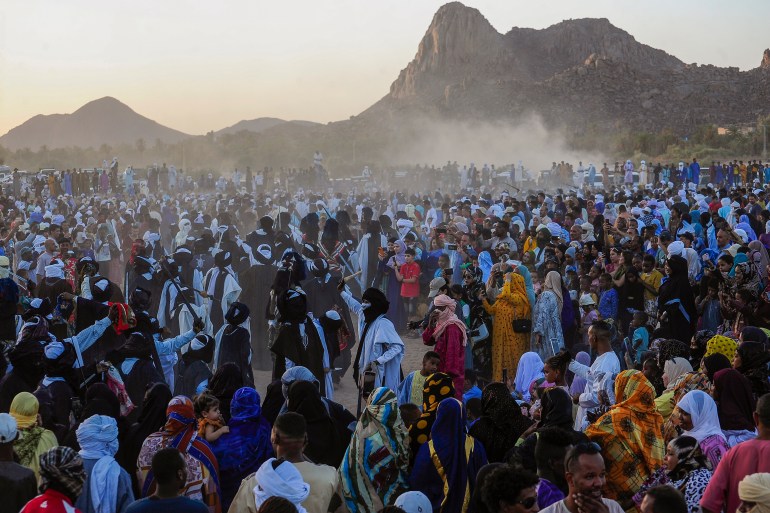Third anniversary of Beirut blast and six months since Turkey and Syria’s earthquakes – here’s the Middle East this week.
The US beefs up its military presence in the Gulf in the wake of confrontations with Iran | Hundreds demand justice in Lebanon on the third anniversary of Beirut blast | And we take stock, six months after devastating earthquakes in Turkey and Syria. Here’s the Middle East this week:
The build-up between Tehran and Washington
When it comes to US escalation and economic warfare with Iran, analysts say the policies of President Joe Biden are reminiscent of the era under Donald Trump, his Republican predecessor.
This week the US beefed up its presence in the Gulf by sending more than 3,000 troops soldiers on two warships, in an apparent response to the seizures of several civilian ships by Iran. But analysts warn that the military buildup risks a “dangerous” confrontation with Iran.
Since 2019, Iran has seized a number of ships in the Strait of Hormuz, the narrow choke point that provides ships with access to the Gulf, to pressure the West over negotiations regarding Tehran’s collapsed nuclear deal with world powers.
As tensions ramped up this week, Iran equipped its Revolutionary Guard’s navy with drones and 600-mile range missiles. Tehran also touted that it had obtained supersonic cruise missile technology.
“What do the Persian Gulf, the Gulf of Oman and the Indian Ocean have to do with America? What is your business being here?” Iranian armed forces spokesperson Brigadier-General Abolfazl Shekarchi said this week over the US buildup.
Three years on, Beirut demands justice
It was a sombre anniversary in Lebanon this week. Three years have passed since the catastrophic explosion in Beirut’s port on August 4, 2020 that killed more than 220 people, injured at least 6,500 others and destroyed large parts of the capital.
The government line was that the explosion was due to haphazardly stored ammonium nitrate, but the investigation into one of the largest non-nuclear explosions in history is still at a standstill, with survivors angry and looking for answers.
Hundreds of protesters marched alongside victims’ families to demand justice, with some protesters carrying a Lebanese flag splattered with red paint to symbolise blood.
With Lebanon embroiled in a crippling economic crisis, Michael Fakhri argues that an international investigation into the explosion would help the country avert collapse. After all, he said, the state of the Lebanese economy and the stalled investigation both arise from a culture of impunity.
Quake-ravaged Turkey and Syria, six months later
It’s been six months since two devastating earthquakes hit Turkey and Syria, killing nearly 4,000 people in Syria and roughly 50,000 in Turkey. And people in the regions are still reeling.
In Turkey’s southern Hatay province, water shortages coupled with scorching summer temperatures are leading to illnesses. “My children are nauseous, I am afraid they will be poisoned,” said Gul Basaran, who now lives in a tent with her four children outside the town of Samandag, on Hatay’s Mediterranean coast, after their home was destroyed.
And in northwestern Syria, a tent hospital was erected in an urgent response to the earthquake disaster, but the region’s healthcare sector is still suffering, largely due to the scarcity of aid provided by international organisations.
Harvest season is also now upon Turkey, its southeastern region a major agricultural one known as the Turkish Fertile Crescent. But after the quakes, will the country’s food and farming ever be the same, as its people remain traumatised while farmland lies devastated?
And now for something different

A colourful festival deep in the Sahara oasis of Djanet that ends in a hard-fought music and dance competition between two rival villages? That’s the 3,000 year-old Sebeiba festival that Algeria’s Tuareg community holds each year.
The stunning 10-day affair is considered a UNESCO ‘Intangible Cultural Heritage of Humanity’ event.
Briefly
Quote of the Week
“We meet our water needs with the water coming from the mountains but the water flows very little. We wait 20 minutes for five litres of water […] May God not put anyone in the situation we are in.” | — Gul Basaran, who lives in Hatay, along Turkey’s quake-ravaged Mediterranean coast.
Sumber: www.aljazeera.com
 Skip to content
Skip to content

